Special Session: Advances in Optical Image Processing and Remote Sensing Monitoring
Optical image processing and remote sensing monitoring play a crucial role in our lives, helping us achieve accurate monitoring, evaluation, and decision-making. With the rapid development of artificial intelligence and 5G, the application of optical and remote sensing technology is also being redefined, such as placing information within reach through real-time monitoring, diagnosis, and ultra wide-band communication of data networks. This session will introduce the innovation of sensing devices based on optical remote sensing and related technologies such as image enhancement, classification, multi-source data fusion and analysis based on deep learning, in order to improve the accuracy, flux and efficiency of monitoring. We will also discuss the application of innovative algorithms in the real world and how to address challenges such as noise reduction, super-resolution, and automatic feature extraction. By promoting interdisciplinary, cross disciplinary, and cross-border cooperation, this theme aims to accelerate technological innovation, expand the capabilities of optical remote sensing monitoring, and ensure efficient access to reliable data and accurate analysis in areas such as sustainable agricultural development, climate environment adaptation, and natural disasters response.
This session focuses on exploring the next generation of optical imaging technology and artificial intelligence driven remote sensing technology, as well as their applications in fields such as agriculture. Unlike other sessions, this session emphasizes efficient real-time processing of information, multi-modal data fusion, and edge AI applications, which are crucial for modern remote sensing applications. This session will pay special attention to many directions of multi-sensor fusion (various optical sensors, LiDAR, IoT), which can break through the barriers of traditional technology and achieve precise monitoring of some inaccessible areas. In addition, this session will also focus on introducing emerging issues or challenges in the current development of disciplines, such as developing lightweight deep learning models for drone monitoring and interpretative artificial intelligence for environmental diagnosis, ensuring collaborative research and application with academia and industry. This session will introduce some influential research and applications in the fields of smart agriculture, smart cities, or smart climate, such as AI-driven spectral imaging that can detect the quality of agricultural products, nutritional deficiencies in farmland plants, or environmental quality assessment. Therefore, by integrating cutting-edge research in optics and remote sensing technology, this session can promote deeper discussions and cooperation between academia and industry, and drive innovation in optical image processing and remote sensing monitoring.
Related topics:
Important Dates:
Submission Deadline: March 25, 2026
Notification: April 25, 2026
Registration: May 10, 2026
Submit Method:
1, submit it via the link: http://www.easychair.org/conferences/?conf=icicsp2026 (after entering the link, click on the corresponding topic)
2, send your manuscript to icicsp@vip.163.com with subject "Submit+Special Session-14+Paper Title". (请通过邮件发送稿件,邮件题目:Submit+Special Session-14+Paper Title)
CHAIRMANS:

Yu Zhang is currently serving as a researcher at Xianghu Lab(Zhejiang Province Key Lab, China) and also serving as chief Scientist of Institute of Smart Agriculture, Zhejiang TOP Cloud-agri. Before returning to China, he studied or worked at the well-known Japanese universities and research institutions such as Waseda University, University of Tokyo, Chiba University, and NARO, Japan. He obtained bachelor's, master's, and doctoral degrees from Nankai University, Waseda University, and the University of Tokyo, respectively. His research areas involve sensing systems, remote sensing monitoring, artificial intelligence, and agricultural robots. After returning to China, his research achievements have won the "CISILE 2024 China Independent Innovation Gold Award", the top 50 high-value application programs of 2023 National Artificial Intelligence Innovation Application Competition of the Ministry of Science and Technology, and the sixth China International Internet plus Innovation Application Competition of the Ministry of Education won the national bronze award, and other awards or honors.
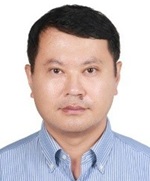
Dan Zhao is a professor at the Aerospace Information Research Institute of the Chinese Academy of Science and has received funding from the National Key Research and Development Programme's Young Scientist Project. His research focuses on remote sensing for aboveground biomass. He has proposed a new approach to monitoring aboveground biomass using the 'density × volume' method and has developed key technologies for non-destructive, ground-based observation, as well as spatiotemporally continuous, regional monitoring of aboveground biomass in forests and grasslands. He has also created a remote sensing-based estimation dataset for aboveground biomass at a national scale from 2000 to 2020. These efforts have provided technical support for the high-quality development of the forestry and grassland industries.
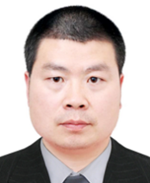
Qingwu Hu is a professor in Photogrammetry and remote sensing of Wuhan Universiy, and a visiting professor in Transportation Geography of University of Tennessee.His research interests multi-sensor integration mobile mapping, LiDAR and image fusion Simultaneous Localization and Mapping.
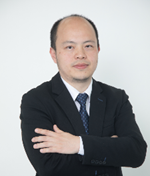
Prof. Dr.-Ing. habil. Hui Liu is the chair professor at Central South University, distinguished professor of Yangtze River Scholars of the Ministry of Education. He mainly interests in cross-research of artificial intelligence, robotics, digital twins and equipment. He was selected as Clarivate Analytics-Global Highly Cited Scientist, "Outstanding Young Scholar of China Engineering Frontier" of the Chinese Academy of Engineering, "Outstanding International Engineer Award" of the Royal Academy of Engineering, National Young Top Talent, Elsevier China Highly Cited Scholar, etc. He successively obtained the bachelor's degree of "Mechanical Engineering" in Central South University, the master's degree and doctor of engineering (PhD) in "Vehicle Application Engineering", and the doctor of engineering (Dr.-Ing.) in "Robotics Engineering" of CELISCA Key Laboratory in Germany. He was awarded the Germany Professorship (Robotics). He was the BMBF Junior Group Leader named by the German Federal Ministry of Education and Research and the director of the CELISCA Robotics Institute in Germany. He won the Springer-Nature "China New Development Award" and the Baosteel Outstanding Teacher Award. As the first PI, he won the World Internet Conference Leading Technology Award, the Second Prize of Technology Invention of the Ministry of Education, the Second Prize of Natural Science of the Ministry of Education, the Wu Wenjun Artificial Intelligence Technology Award and other awards, and participated in the first prize of the National Science and Technology Progress Award.
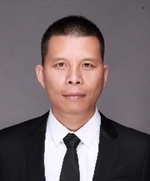
Chen Xiaojing, Ph.D., is a Professor and Doctoral Supervisor serving as the Deputy Dean of the School of Electrical and Electronics at Wenzhou University. His primary research focuses on optoelectronic information processing and detection. He has led four national-level projects and over ten provincial/ministerial-level projects. Supported by various national and provincial research programs, he has conducted in-depth and systematic studies on optoelectronic information processing and detection models. As the first or corresponding author, he has published more than 30 SCI papers in Q1 and Q2 journals in related fields, including Sensors and Actuators, Analytica Chimica Acta, Food Chemistry, Knowledge-Based Systems, and Chemometrics and Intelligent Laboratory Systems. His research achievements have been honored with awards such as the China Patent Award and the Science and Technology Progress Award from the China Instrument and Control Society.

Tianjun Wu is a professor and doctoral supervisor at the School of Land Engineering, Chang'an University. He serves as the head of the Geography Department at the university. He is mainly engaged in the research on remote sensing big data intelligent computing and geographic spatiotemporal intelligence. He has published over 100 academic papers in journals such as IEEE TGRS, IEEE JSTARS, and IEEE GRSL, authored 2 monographs, obtained 7 authorized invention patents/softwares, and led 7 national or provincial research projects. He serves as a member of the "Space Earth Big Data" and "Digital Mountain" Special Committee of the China National Committee of the International Digital Earth Society, and a reviewer for IGARSS and several journals in the field of remote sensing and geographic information.
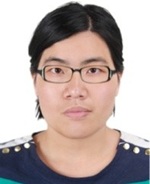
Zhang Wangfei is a Professor and Doctoral Supervisor at the College of Forestry, Southwest Forestry University. She holds a postdoctoral fellowship from the Chinese Academy of Forestry and has been a visiting scholar at the University of Victoria (Canada), the National Institute of Technology (New Zealand), and the University of Stirling (UK). Her research interests include vegetation scattering mechanisms of SAR, Key technologies such as PolSAR, InSAR, and PolInSAR for forest height estimation, Multi-source remote sensing data fusion and its applications in quantitative vegetation remote sensing, and Smart growth monitoring of forest.
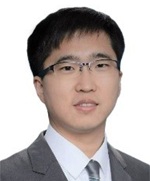
Dr. Pei Wang is an Associate Professor at the College of Engineering and Technology, Southwest University, and a Reserve Candidate for the Fourth Batch of Chongqing Academic and Technical Leaders. Holding Bachelor's, Master's, and Ph.D. degrees from China Agricultural University and the University of Hohenheim, Germany, his research spans plant protection machinery and application technology, pest/disease identification and early warning systems, and precision weeding equipment development. Actively engaged in the academic community, he serves as a working group expert for the ISO/TC23/SC6 Committee on Plant Protection Equipment, Associate Editor for Frontiers in Plant Science, and Discipline Associate Editor for Smart Agriculture at Frontiers of Agricultural Science and Engineering (Journal of the Chinese Academy of Engineering). Dr. Wang has been recognized internationally as a recipient of the European Conference on Precision Agriculture's "Young Scientist Grant" for his contributions to the field.
